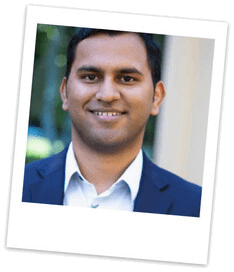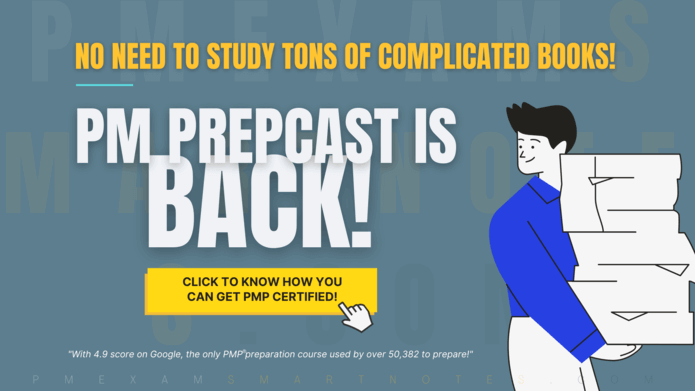 After realizing how important it is to have an understanding of project management, he decided to take up PMP and passed it. The main takeaway? Make your own PMP notes!
After realizing how important it is to have an understanding of project management, he decided to take up PMP and passed it. The main takeaway? Make your own PMP notes!
Vinamra Tiwari is a Test Automation Manager, with mostly technical work and an obsession for the quality of deliverables. In his free time, Vinamra loves binge-watching and going on road trips (with a family record of covering 47 states in the US so far).
What made you take up PMP?
 I took up the PMP exam as this was one of the learning objectives set up by my supervisor, to understand the Project Manager’s roles and responsibilities.
I took up the PMP exam as this was one of the learning objectives set up by my supervisor, to understand the Project Manager’s roles and responsibilities.
He also made me aware that after taking this exam I will have a basic understanding of how the project is initiated and executed.
There wasn’t another project management certificate as exhaustive and valuable as PMP, so that’s the one I went for straight away.
Now that I am PMP certified, I am targeting to be AWS cloud certified next.
Now that you are certified, what are your expectations?
The core benefit from this exam was the understanding of terms that we usually hear in the project but unable to understand as we would be working in a specific architectural/technical area of a project. Another core benefit is learning about leadership aspects.
PMP exam preparation has helped me understand various areas such as procurement handling, stakeholder assessment, etc. in a much better way now.
More importantly, I have the complete picture of how the product is created, managed, and transitioned – this has broadened my understanding.
What were your study resources?
I went with PMBOK book and Rita Mulcahy book.
Apart from these, I took PMP simulator tests for practice.
You may be interested in –
- Smart use of PMP simulator helped me pass PMP, says Julian
- A simple PMP success insight Karuna got early into her PMP journey
- Debashis shares why PMP is important for Construction industry PMs
How did you approach the exam, and what was your study plan?
After hearing about how people can get false-starts with the PMP exam preparation, I set a very strict timeline for myself.
Every day after work, I made sure that I study at least 3 hours a day. Basically, I targeted 120 man-hours for my preparation.
To give 3 hours each day was a bit tough in the initial days but then once it became a habit it wasn’t much difficult.
Secondly, I began making my own PMP notes – and that helped!
As I studied a Knowledge area I would make my own study notes and relate them with my own experience so that I remember them easily.
Once I made the notes, I would read the book once again and cross-check it with my notes to see if I missed anything.
Lastly, online videos also helped me a lot. I used to search for knowledge areas on YouTube, and listen to them when studying through books seemed a bit boring. This helped me get a different perspective on the topics I was studying.
Did you face any challenges along the way?
Well, I found that few terms were thrown about in the PMBOK book without a detailed explanation, so I had to scout the internet to learn more about them. I would come across an article or a video and I would add the new knowledge gained into my notes.
Another challenge was scoring well on the mock exam.
I overcame this by taking considerable time to assess exam results every time.
PMP mock exam has a very high passing rate (80%, as a thumb rule) but assessing it and examining each answer helped me to pass the mock tests and gain confidence.
Taking mock exams was very good practice for me to understand how the actual exam might feel like, to identify my weak areas, and to practice managing my time per question well.
I would recommend everyone to aim to take as many mock tests as possible.
Ad: Get certified in 6-8 weeks with PM PrepCast – now grab the not-seen-before inaugural offer!

The week before the exam is crucial. How did you do there?
Last week is the most crucial, and my approach was to target the areas that have the maximum weightage on the exam.
I decided to focus more on Execution and Planning in the last week. Just went through different Inputs / Outputs of the processes and revised each term present in the processes.
Two days before the exam, I gave the mock exams again to gain confidence and make sure I still remember the logic behind approaching each answer.
What was your exam experience like?
I took the exam online. The experience was good.
The exam sure felt very lengthy. 🙂
I would recommend taking the mock exams very seriously by practicing them in the same way as the real exam (timing yourself, taking scheduled breaks etc). I sat for four hours in each mock test and I felt that the practice was truly was helpful.
During the online exam please make sure you are sitting at a place where there is no noise or the invigilator might interrupt you and you may lose concentration. So always choose a place where you know you will be undisturbed by outside noises for 4+ hours.
Exam questions were based on the weightage as mentioned in the PMP handbook.
The complexity of the test is a subjective matter so I won’t go into it but most importantly, knowing each term used in PMBOK is crucial, is what I felt.
For example, PMBOK can ask questions on Requirements Traceability Matrix directly or indirectly so if we know the definition and how it then the complex situational questions are easy to understand and answer.
You mentioned you took your own PMP notes. Any other study tips for PMP students?
Of course. I cannot stress how much our own PMP notes help – especially as the exam inches closer. Going over the notes and knowing that I got it gives lot of confidence.
- Most important tip – please set and follow a study routine. Even if all you can give is an hour a day, make sure you get the most out of it.
- Find a study Partner – If one can find a study partner, it becomes easy to relate, revise, and remember topics easily.
- Always try to imagine any knowledge area in a very holistic view, e.g. Project Quality management is not just under Testing, it actually should be viewed in everything that we do in the project.
- Find a mentor who knows the ins and outs of PMP and preparation. This again saves tons of time and helps to streamline your study approach.
- Mock Tests – Don’t obsess on mock tests, but take enough to help you get a good grip on answering various questions in a rhythm.
And again… don’t miss making your own PMP notes. 🙂
Good luck!



